Nepal’s prime minister KP Sharma Oli stepped down on Tuesday after at least 19 people were killed in anti-corruption demonstrations triggered by a government ban on social media platforms.
The protests, led mainly by young people, forced Mr Oli to reverse the ban as anger turned against politicians, with demonstrators setting fire to the homes of senior political figures. The unrest has exposed deep-rooted frustration over corruption, nepotism and political instability in the Himalayan nation.
The restrictions, imposed last week, blocked Facebook, X, YouTube and other major networks that refused to register under new regulations giving the government direct oversight.
Officials said repeated notices had been ignored and argued that unregulated social media was enabling the spread of fake identities, fraud and hate speech. Only five services – including TikTok and Viber – had complied with the requirement and remained accessible.
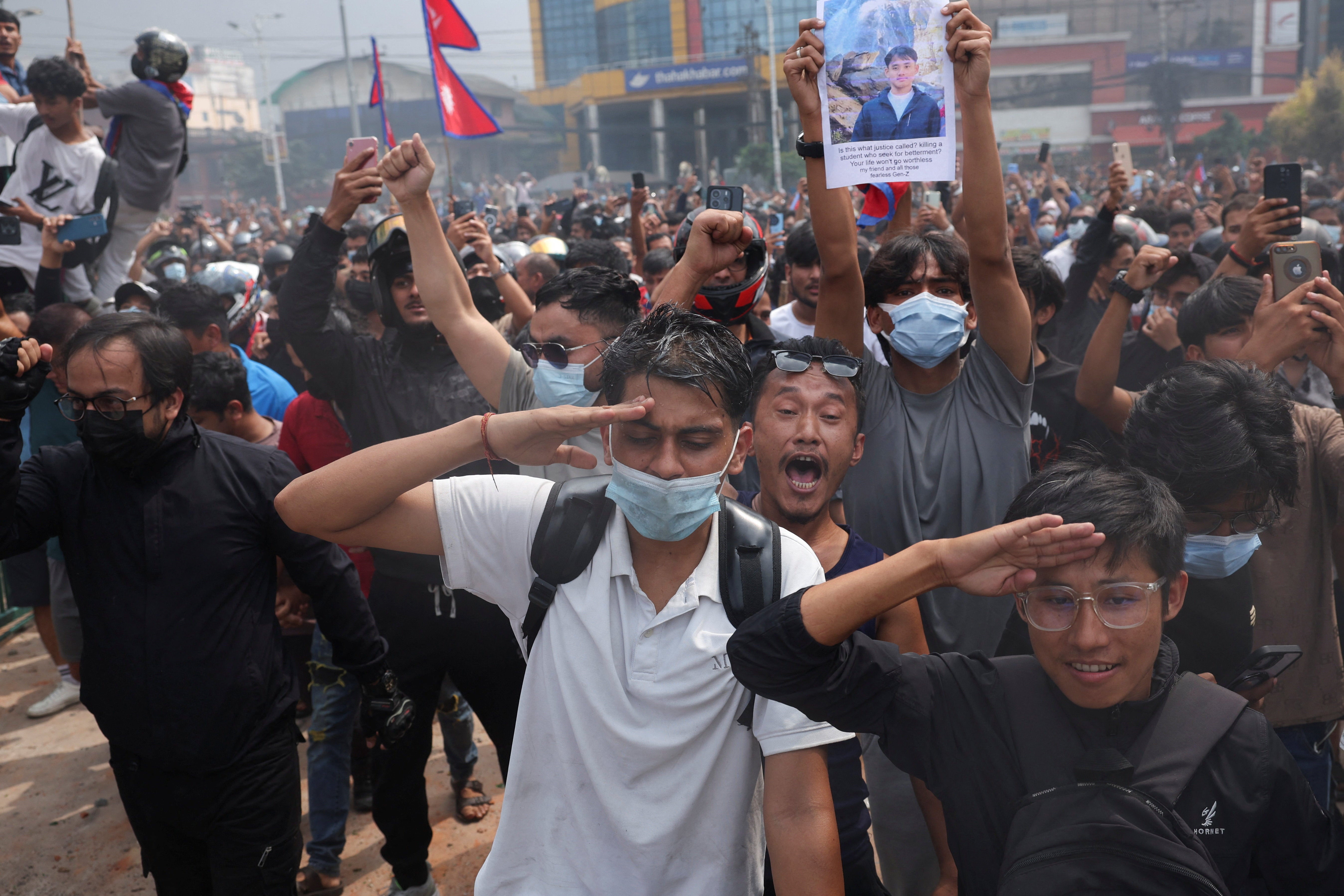
A bill now before parliament seeks to require platforms to set up local offices and ensure they are “properly managed, responsible and accountable”. Rights groups have condemned the draft law as a tool for censorship designed to silence dissent.
Nepal's social media shutdown also came as governments worldwide, including the US, EU, Brazil, India, China and Australia, take steps to tighten oversight of social media and Big Tech due to growing concern about issues such as misinformation, data privacy, online harm and national security.
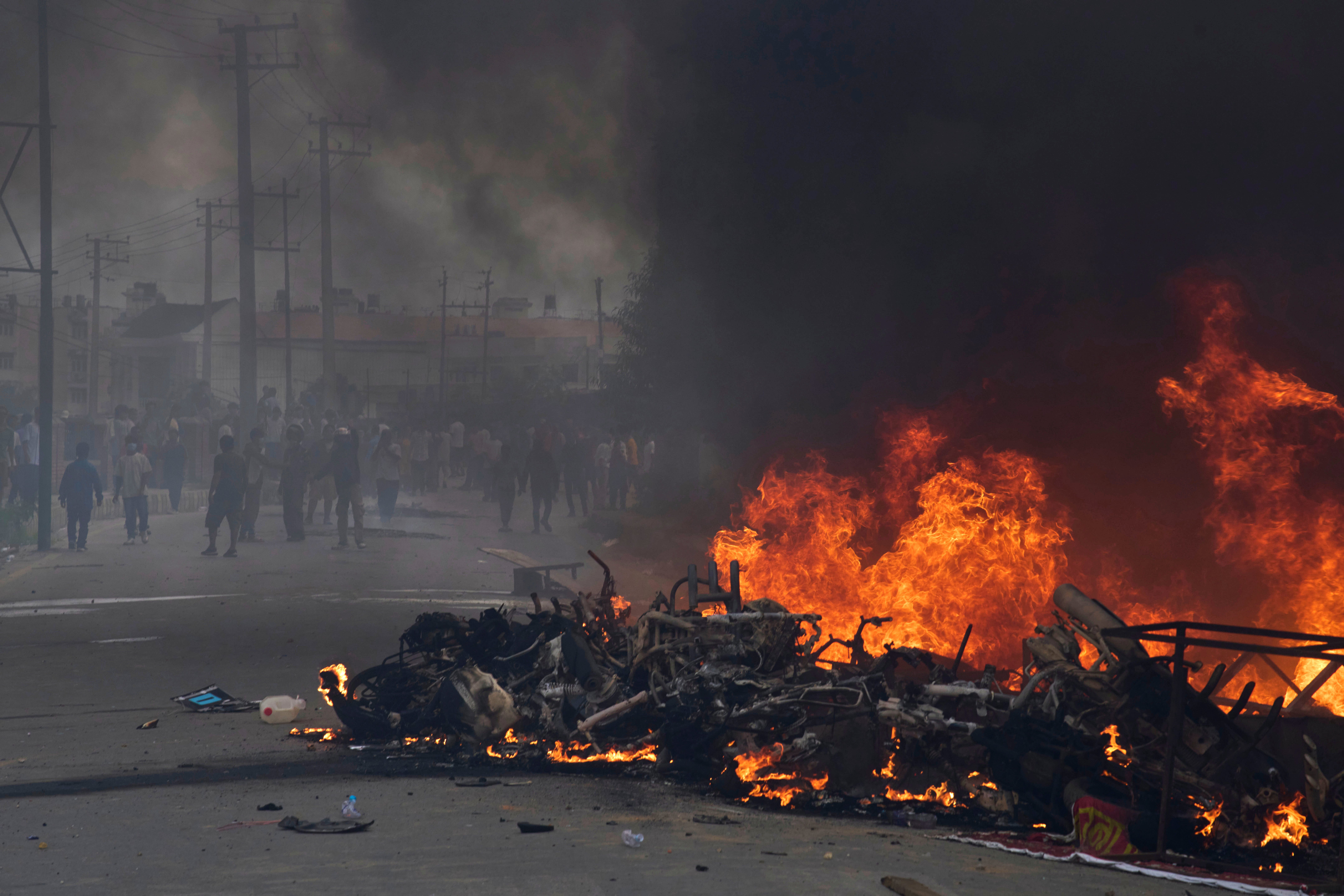
Nepal briefly banned TikTok in 2023, accusing it of spreading indecent material and threatening “social harmony”. That decision was reversed last year after the company pledged compliance with local rules. Pornographic websites have been blocked nationwide since 2018.
Critics say many of these measures risk stifling free expression, but regulators say stricter controls are needed to protect users and preserve social order.
The demonstrations, however, quickly broadened into what has been called the “protest of Gen Z” – referring to those born between 1995 and 2010 – as young Nepalis demanded accountability from politicians they accuse of enriching themselves while ignoring the struggles of ordinary citizens.
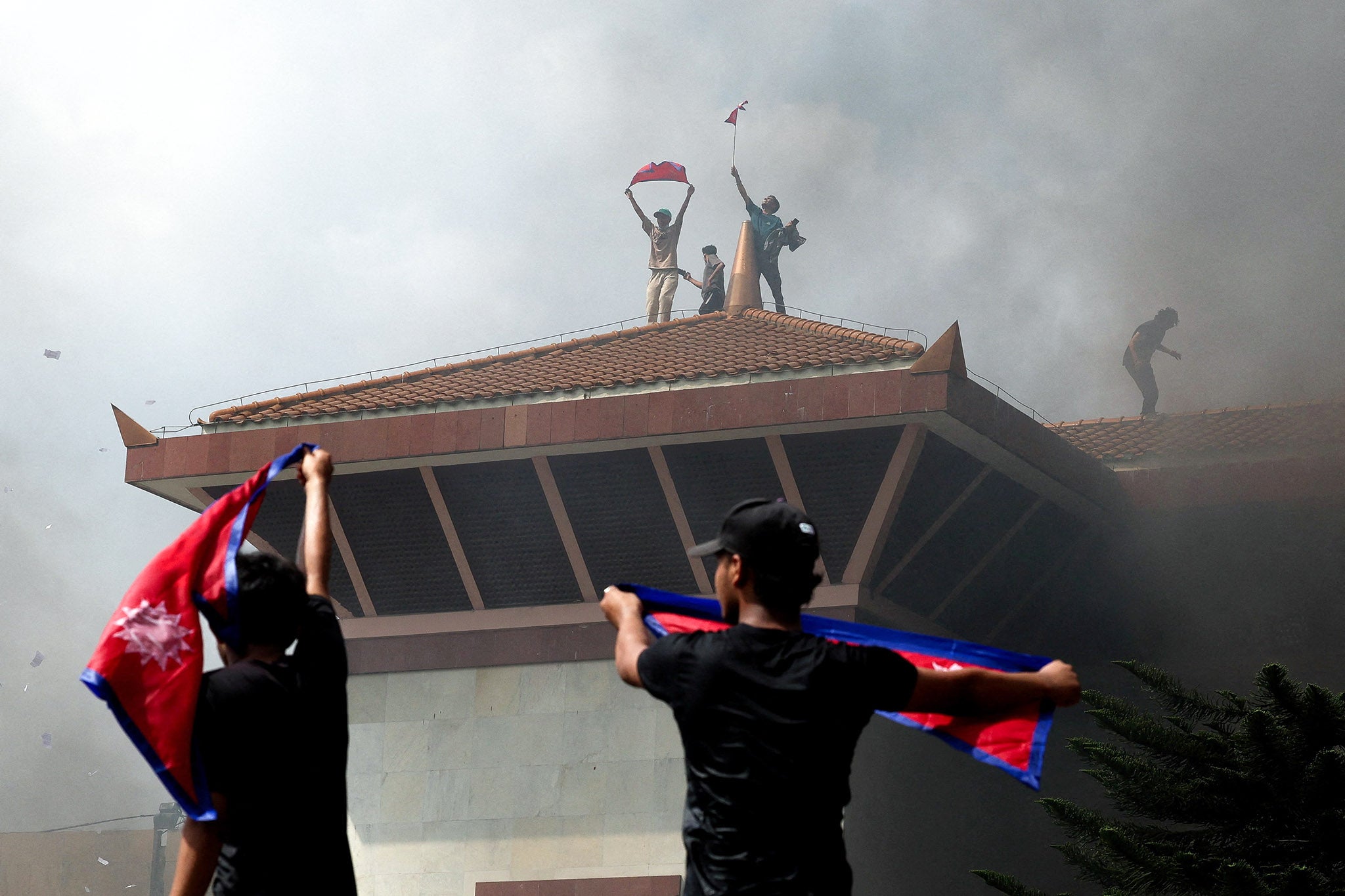
“Protests over the social media ban were just a catalyst. Frustrations over how the country is being run have long been simmering under the surface. People are very angry and Nepal finds itself in a very precarious situation,” said Prateek Pradhan, editor of Baahrakhari, an independent Nepali news site.
In recent weeks, TikTok videos showcasing the lavish lifestyles of political families’ children had fuelled resentment in the country. The government’s failure to pursue corruption cases and an unemployment rate of 20 per cent among youth deepened the anger.
“All these issues have made the youth of Nepal dissatisfied. They saw no other option but to take to the streets,” Mr Pradhan added.
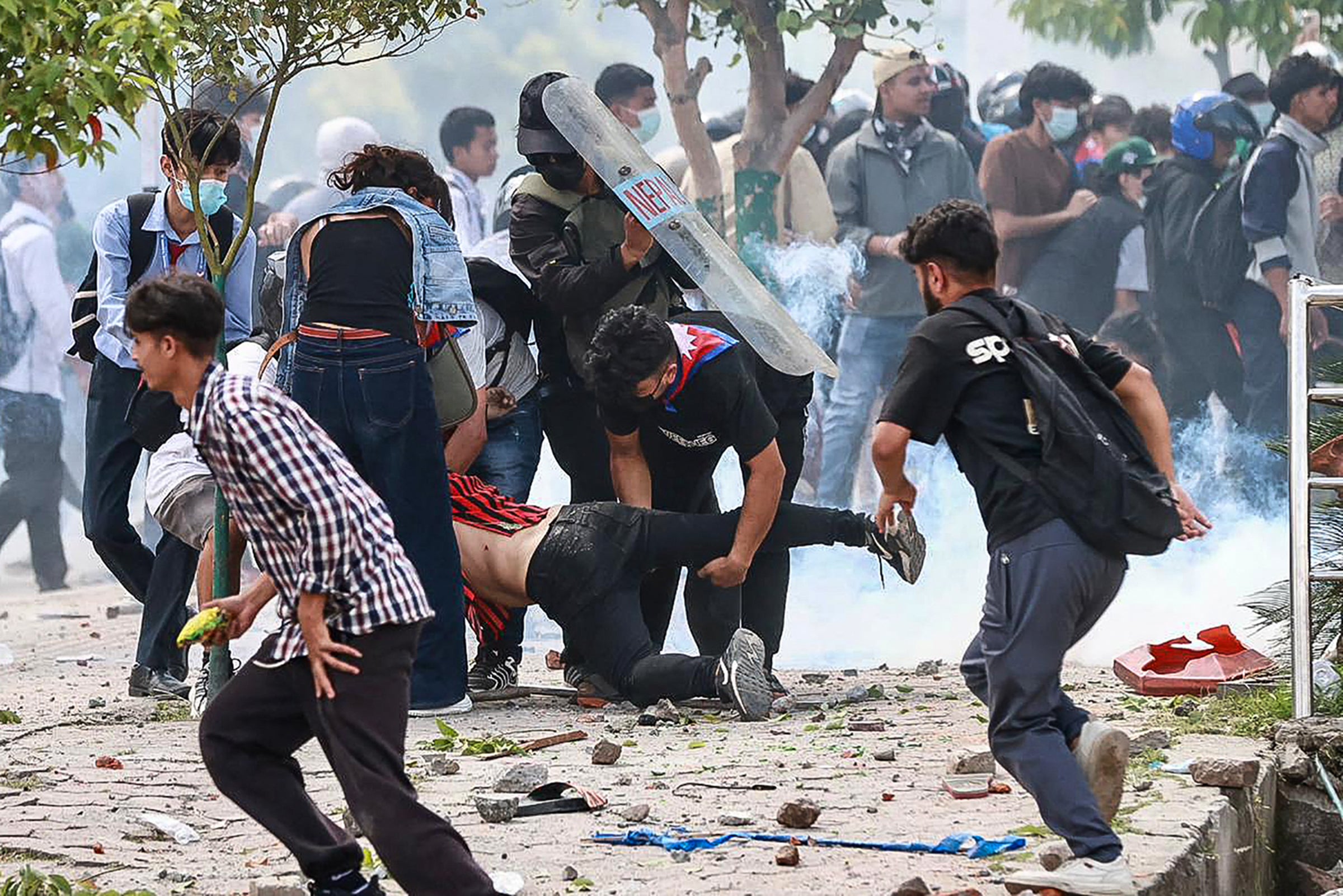
The violence on Monday makes these protests the deadliest Nepal has seen in decades, exceeding even the 2006 uprising that forced the monarchy to cede power and led to the eventual abolition of the crown two years later. Earlier this year, royalist rallies in Kathmandu left two people dead after clashes with police.
Although Mr Oli resigned, protesters have continued to call for the government itself to be dissolved, raising fears of further instability in a country that has seen 13 administrations since 2008.
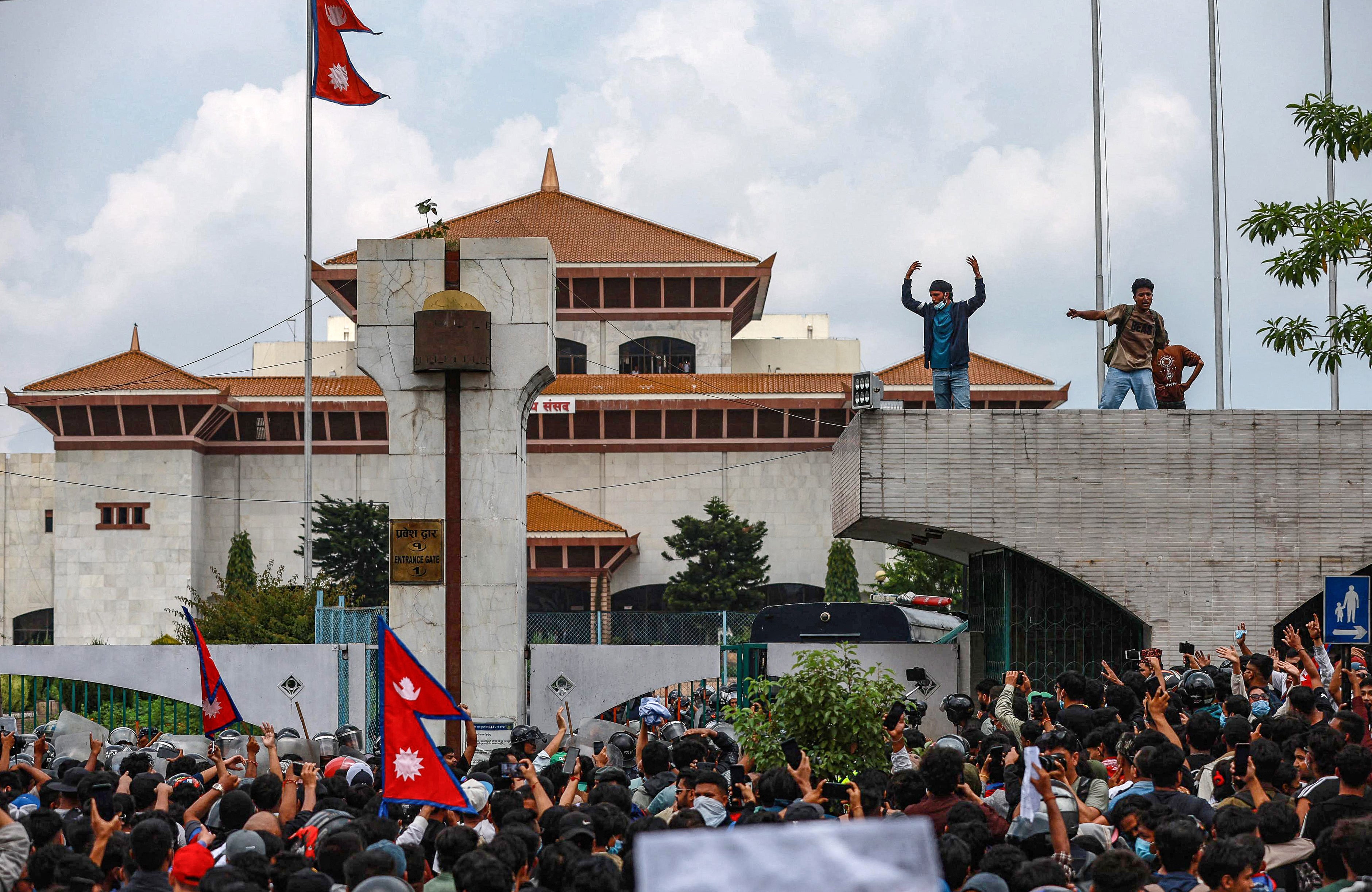
On Monday and Tuesday, crowds of tens of thousands gathered in the capital Kathmandu to protest against the corruption and oppose the decision by authorities to block most social media platforms, including Facebook, X and YouTube, saying that the companies had failed to register and submit to government oversight.
Thousands of youths, including students, many in their school or college uniforms, were stopped by police from marching towards the parliament building, where demonstrations are not allowed. Protesters carried the national flag and placards with slogans such as "Shut down corruption and not social media", "Unban social media", and "Youths against corruption", as they marched through Kathmandu.
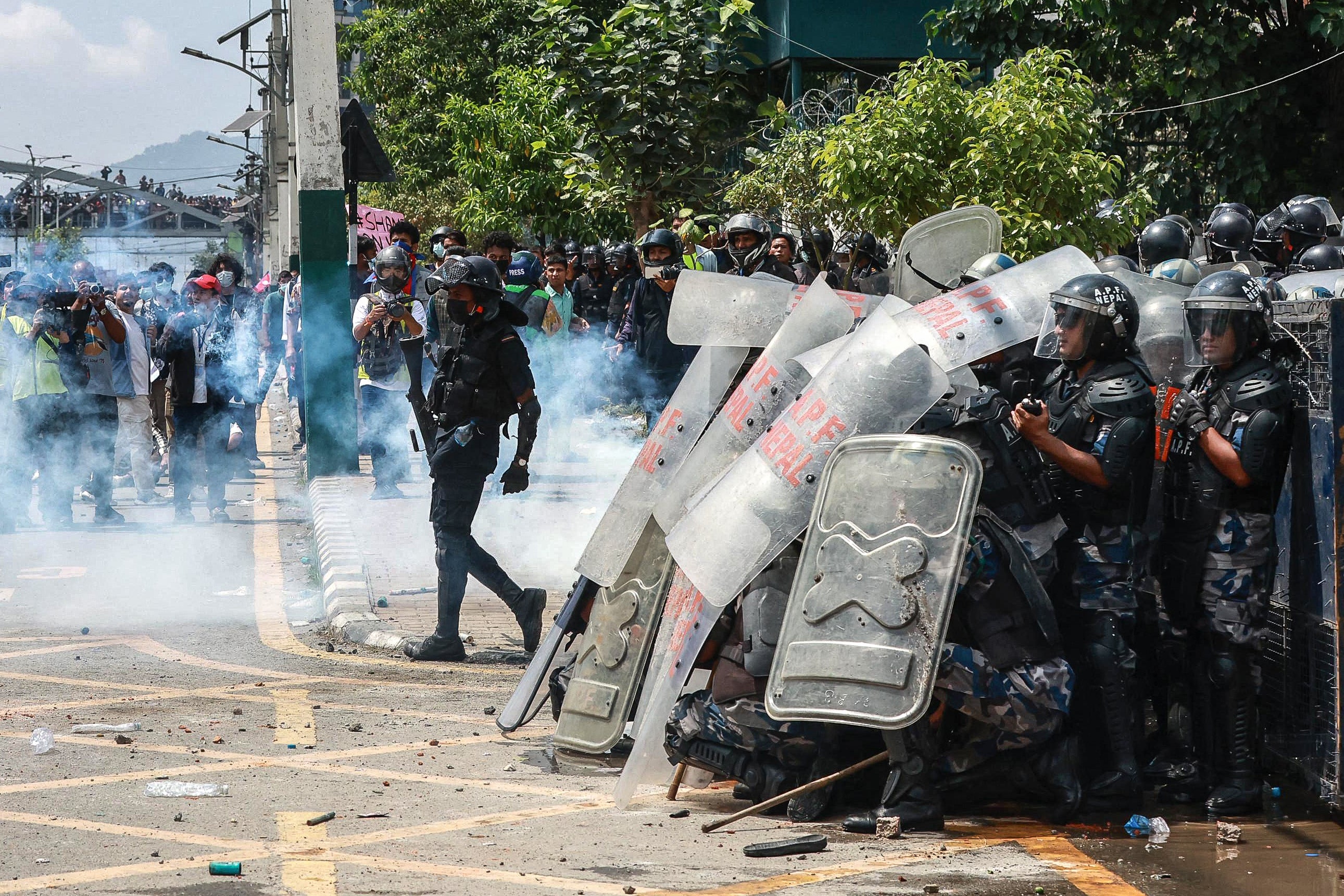
Television visuals showed some protesters throwing projectiles at police personnel who were dressed in riot gear and huddled in one place as smoke from tear gas shells filled the street. Protesters also pushed against police barricades and brought them down.
Police fired tear gas, water cannons and live rounds as protesters attempted to storm the legislature.
A police spokesperson said security forces had been instructed to use batons, water cannons and rubber bullets to regain control but confirmed that firearms were also deployed when crowds overran barricades.
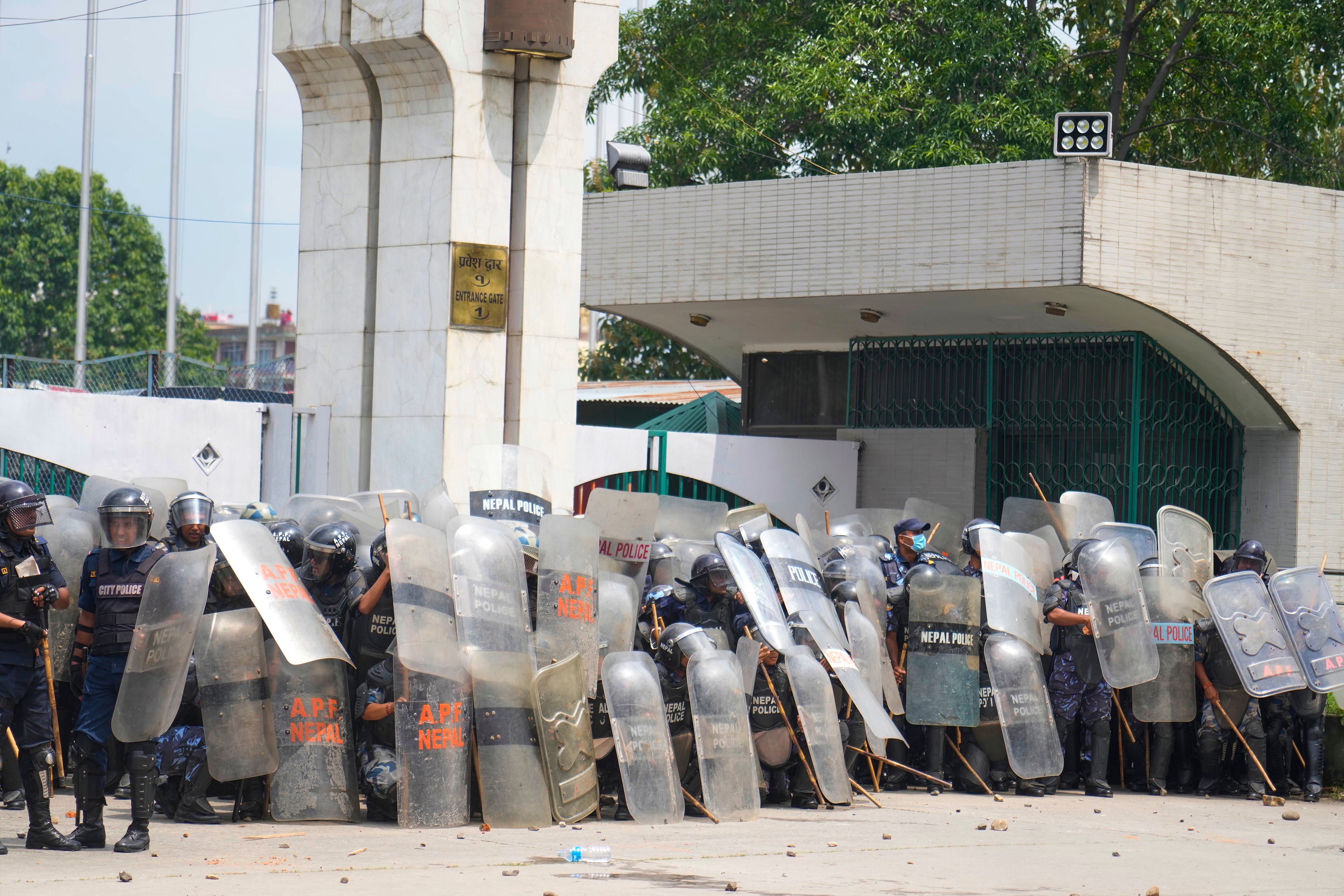
Nima Tendi Sherpa, a 19-year-old shot in the arm during Monday’s clashes, said demonstrations turned violent only after police opened fire on crowds attempting to breach barricades. “I don’t have any harsh feelings toward the policemen. They were just doing their duty by following orders. But I am angry and enraged at the ones who gave those orders,” he said. “Now that the fire has already started, I believe it must continue until we achieve true freedom.”
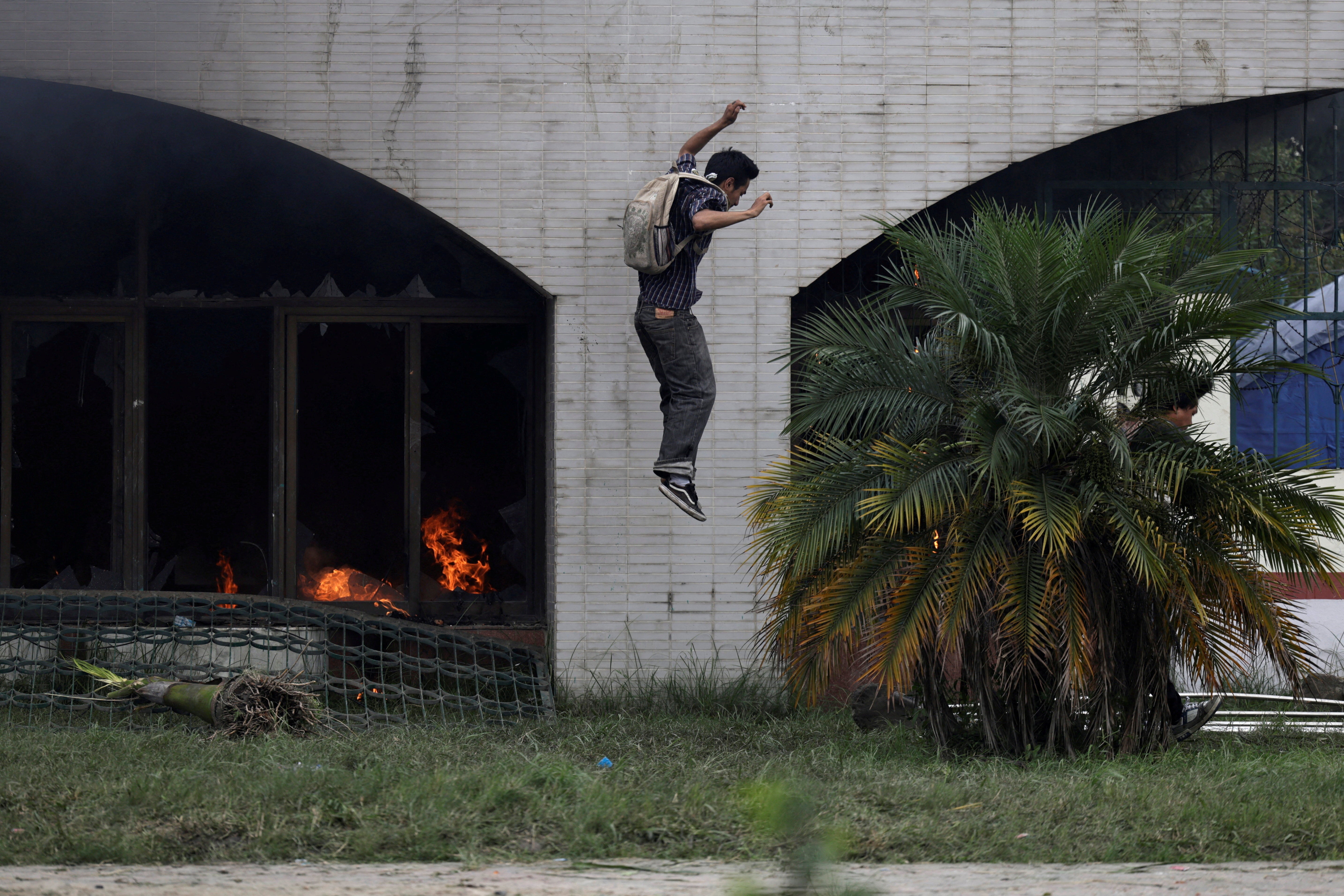
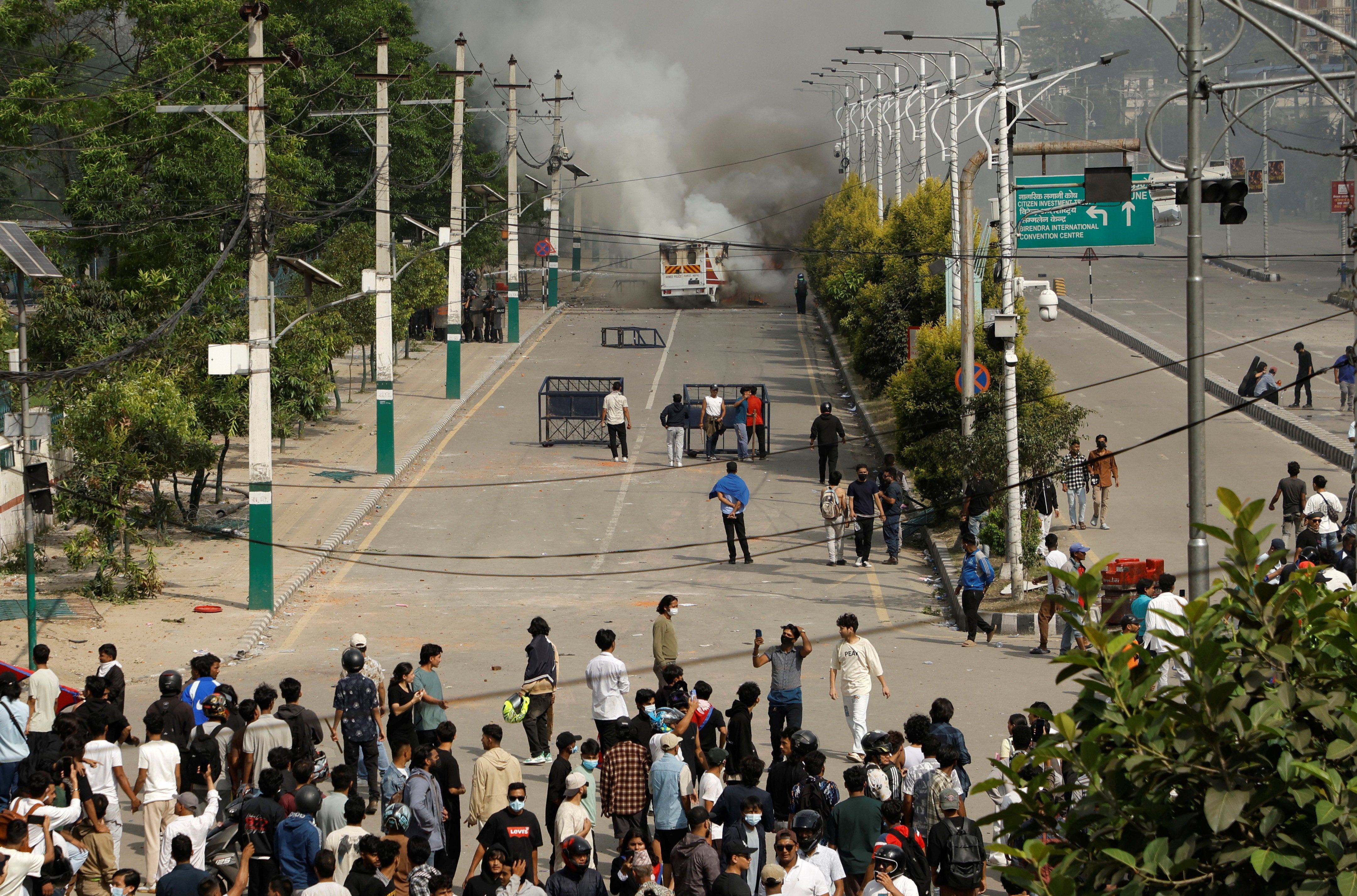
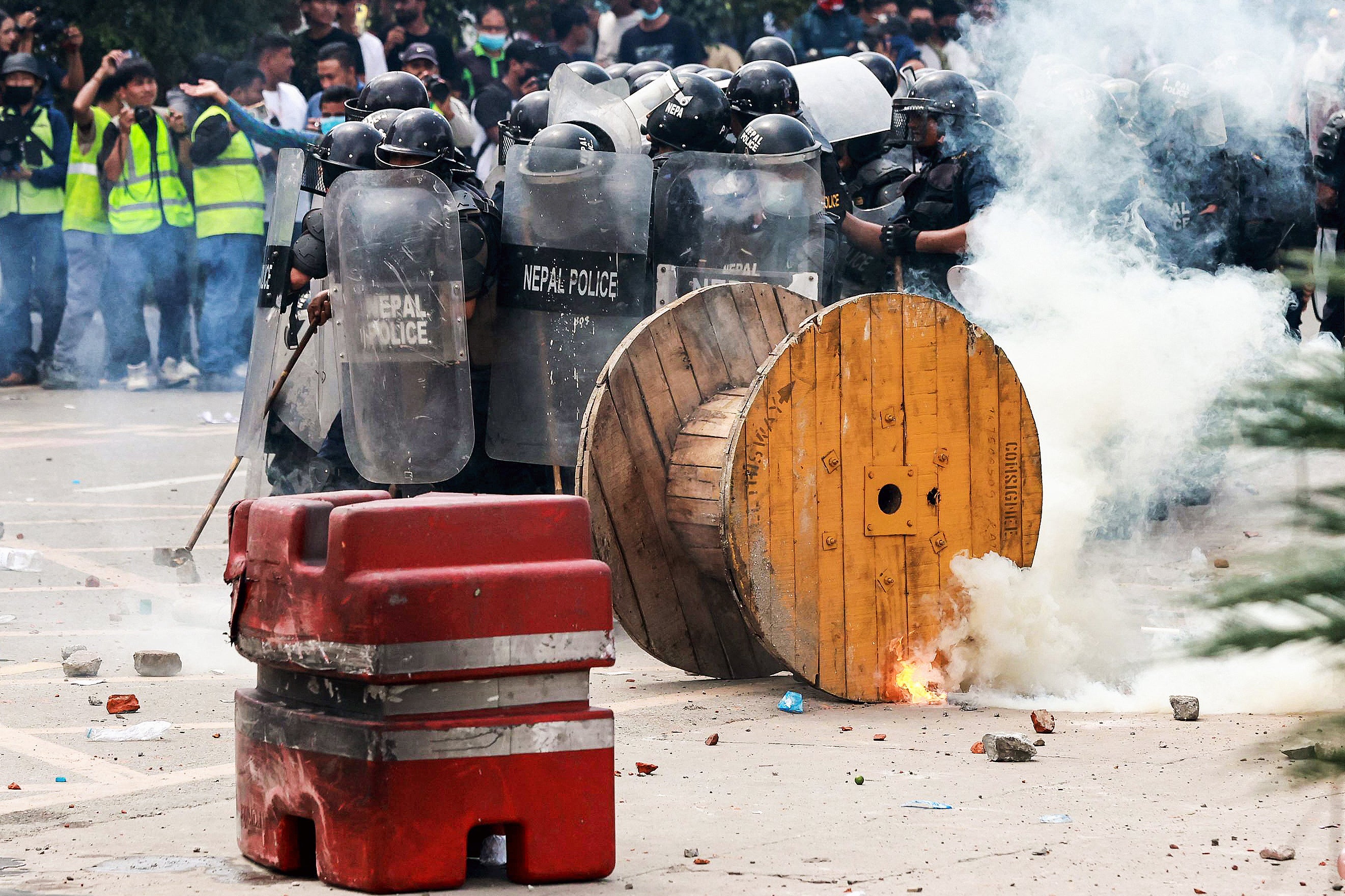
Mr Pradhan warned the movement is beginning to resemble youth-led uprisings in neighbouring Bangladesh and Sri Lanka that toppled governments. “It appears people are just done with how things have been going on. They want a change,” he said.
Nepal prime minister KP Sharma Oli resigns over deadly anti-corruption protests
Nepal scraps social media ban ‘to address demands of Gen-Z’ after 19 killed in deadly protests
Is it safe to travel to Nepal? Government advice amid deadly protests
Tear gas and water cannons fired at Nepal social media ban protests
Behind Nepal’s deadly protests over social media ban lies anger over corruption and nepotism
Nepal internet crackdown part of global trend toward suppressing online freedom







